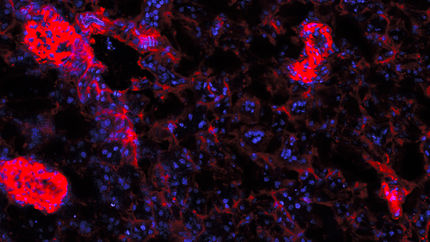Novartis data shows ACZ885 for severe gouty arthritis provided better pain relief and reduced risk of new attacks by up to 68% vs. steroid
Two pivotal Phase III studies showed ACZ885 may meet significant unmet need for patients for whom many standard therapies are inadequate or inappropriate
Advertisement
Novartis announced positive results of two pivotal Phase III trials in patients with severe gouty arthritis, showing that ACZ885 (canakinumab) provided superior pain relief and reduced the risk of new attacks by up to 68% compared to an injectable steroid (triamcinolone acetonide, TA) used to treat gouty arthritis attacks. ACZ885 is an investigational, fully human monoclonal antibody.
The studies involved more than 450 gouty arthritis patients for whom the standard anti-inflammatory therapies, non-steroidal anti-inflammatory drugs (NSAIDs) or colchicine, were inadequate or inappropriate. Results will be presented for the first time at the 2011 European League Against Rheumatism (EULAR) Congress in London.
"These findings show that ACZ885 may represent an important advance in the treatment of gouty arthritis in sufferers whose disease cannot be appropriately managed with currently available treatments," said Professor Alexander So, Rheumatology Department, CHUV, Lausanne, Switzerland, and one of the studies' investigators. "Scientists only recently learned that the root cause of the pain in gouty arthritis is interleukin-1 beta. Through specifically targeting interleukin-1 beta, these studies show ACZ885 can effectively treat painful attacks while extending the time to new attacks."
Both trials used an internationally recognized pain scale to measure differences in pain 72 hours after treatment, and found ACZ885 reduced pain by an additional -11.4 millimeters (mm) (p=0.0005) in one study and -9.8 mm in the other (p=0.0018), compared to TA. ACZ885 also significantly reduced the risk of suffering a new gouty arthritis attack within three months, by 55% in one study (p=0.0014) and 68% in the other (p<0.0001), compared to TA.
ACZ885 was generally well tolerated in the two studies. In one study, 55.8% of patients had adverse events (AEs) with ACZ885 vs. 38.3% with TA. In the other study, 54.5% of patients had AEs with ACZ885 vs. 50.9% with TA. Serious adverse events (SAEs), 10 for ACZ885 vs. five for TA in one study and three for ACZ885 vs. one for TA in the other study, were not considered to be related to study medication by the investigators.



























































